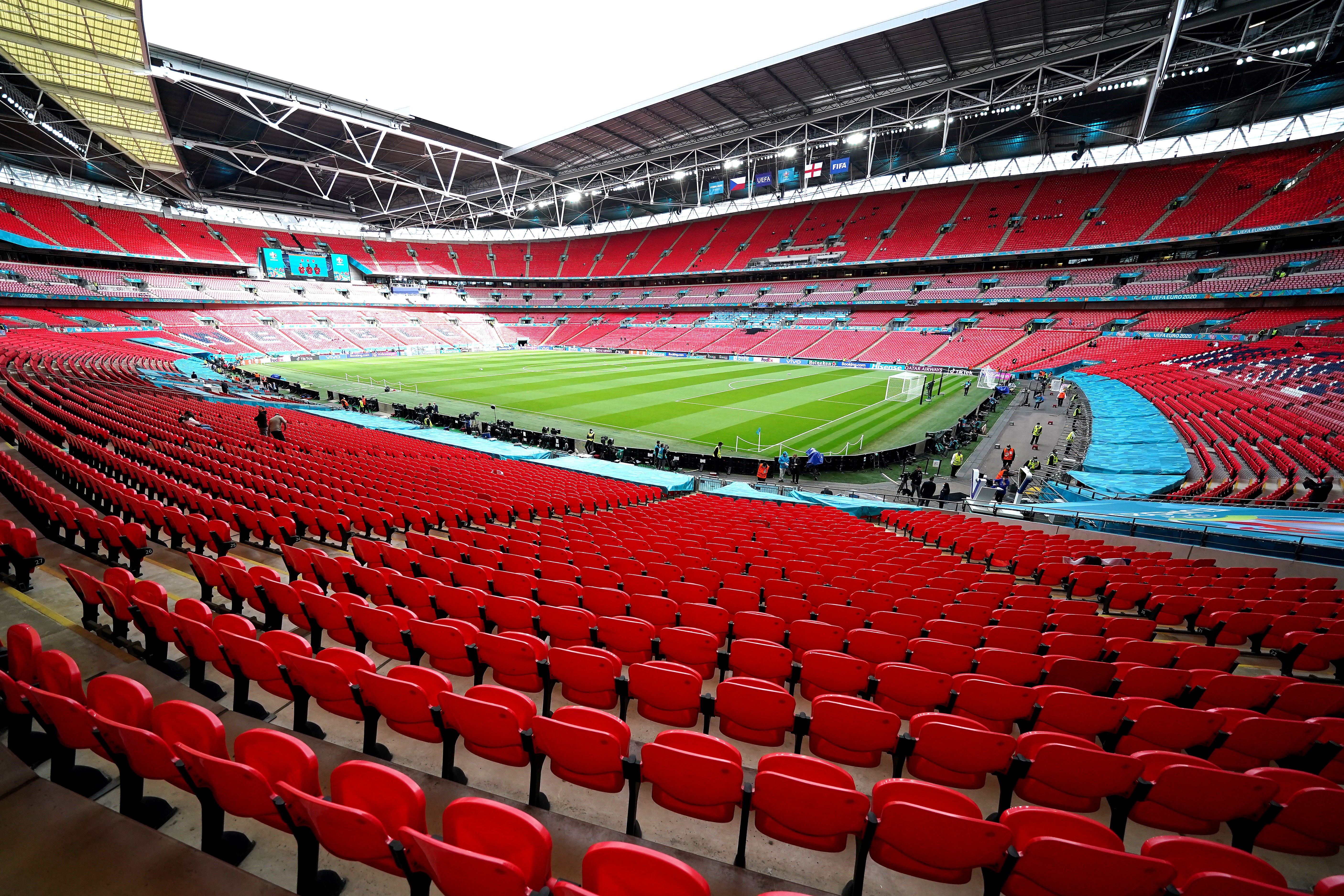Euro 2028 Q&A: Where is it, what stadiums will be used and who will qualify?
The UK and Ireland are set to hold the tournament in six years’ time

Your support helps us to tell the story
From reproductive rights to climate change to Big Tech, The Independent is on the ground when the story is developing. Whether it's investigating the financials of Elon Musk's pro-Trump PAC or producing our latest documentary, 'The A Word', which shines a light on the American women fighting for reproductive rights, we know how important it is to parse out the facts from the messaging.
At such a critical moment in US history, we need reporters on the ground. Your donation allows us to keep sending journalists to speak to both sides of the story.
The Independent is trusted by Americans across the entire political spectrum. And unlike many other quality news outlets, we choose not to lock Americans out of our reporting and analysis with paywalls. We believe quality journalism should be available to everyone, paid for by those who can afford it.
Your support makes all the difference.The UK and Ireland have submitted a formal ‘expression of interest’ in hosting Euro 2028.
The five associations confirmed on Wednesday morning that an ‘expression of interest’ (EOI) had been filed, which has the support of the governments of the UK, Ireland, Scotland and Wales.
“With this unique partnership, we are taking the appropriate next steps and our ambition is to stage a successful Uefa Euro which will be a wonderful celebration of football for fans and teams,” a joint statement from the five associations read.
“We believe Euro 2028 would be one of the greatest sporting events ever held in the UK and Ireland.
“This unprecedented partnership of five associations offers something special to European football, including the potential for an expanded tournament, and we are passionate about maximising the sustainability and legacy benefits for communities across the UK and Ireland.
“Over the coming months, we will develop our proposals further, subject to the publication by Uefa of the full technical specification. This includes engaging in discussions with possible host cities and stadia to define the optimum tournament model and conducting a full costs and benefits analysis.
“The UK and Ireland will offer an unrivalled tournament from a technical perspective – with modern, well-connected stadia and excellent infrastructure – that makes our partnership ideal to host Euro 2028.”
Here we a look at what we know about the bid so far.
How did we get here?
The national associations of England, Northern Ireland, the Republic of Ireland, Scotland and Wales had been involved in a feasibility study looking at a possible bid for the centenary World Cup finals in 2030.
However, they jointly announced on 7 February their intention to go for Euro 2028 instead.
Why did they do that?
Mark Bullingham, the chief executive of the English FA, spoke last month about the greater “uncertainty” surrounding the Fifa process.
The bidding regulations for 2030 have not yet been confirmed, while the international calendar beyond 2024 is not yet fixed.
The possibility of a switch to biennial World Cups looks increasingly unlikely, but altogether the Euros were deemed the more appealing option.
Who else is in the running?
Prior to their invasion of Ukraine, 2018 World Cup hosts Russia had been reported to be interested, while perennial bidders Turkey were also mentioned.
However, The Times reported earlier this week that there were no other formal bids lodged with Uefa with 24 hours to the deadline, appearing to give the UK and Ireland bid a clear run at it. Certainly, no other association has publicly stated an intention to bid.
If it is the sole bid, what happens then?
Uefa is due to confirm bidders on 5 April according to the bidding process information it released last October.
If the UK and Ireland bid stands alone, The Times report that the five associations would then have until the end of the year to provide the necessary government guarantees to Uefa on issues such as security, visas and tax exemptions.
Where would matches be played?

Wembley would be the obvious favourite to host the final, while any number of Premier League stadia fit the bill.
The Principality Stadium in Cardiff, Hampden Park in Glasgow and the Aviva Stadium in Dublin would also be likely to feature, while Northern Ireland is also keen to host matches.
A redeveloped Casement Park could be one option, but nothing was ruled in or out by Irish Football Association chief executive Patrick Nelson last month.
In all, the five associations should comfortably be able to fulfil the stadium requirements set by Uefa – a minimum of 10 stadia in total, one holding at least 60,000 one or preferably two of 50,000, at least four with a minimum of 40,000 capacity and at least three holding a minimum of 30,000 people.
Who would qualify?
That is still to be decided. Uefa’s bidding information published last year said automatic qualification cannot be guaranteed for any more than two hosts.
Football Association of Wales chief executive Noel Mooney said last week the bidding countries had agreed on a “concept” for determining qualification, but that Uefa would have the final say.
It is widely expected that Euro 2028 will be the first continental finals to feature 32 instead of 24 teams.
Is this good news for Uefa?
Very much so. Following on from hosting Euro 2024 in another big market, Germany, a finals staged across the UK and Ireland promises a major revenue boost for Uefa and its member associations as they recover from the financial impact of the Covid-19 pandemic.
There had been concerns that the chaos surrounding the Euro 2020 final had damaged England’s reputation as a major event host, but Uefa continues to demonstrate its faith in Wembley and will bring the ‘Finalissima’ match between Italy and Argentina to the London venue in June, while England are also the hosts for this summer’s Women’s Euro.
Join our commenting forum
Join thought-provoking conversations, follow other Independent readers and see their replies
0Comments